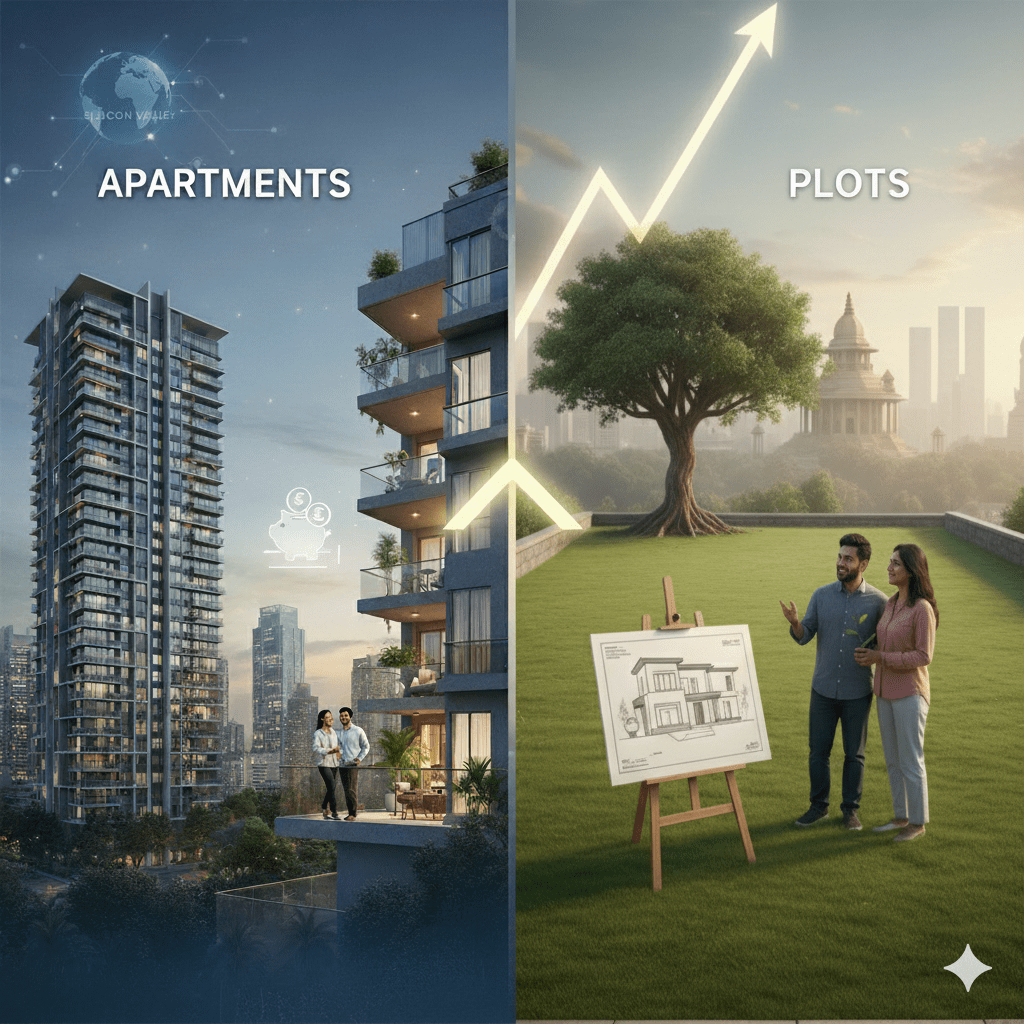Why Today’s Real Estate Success Is Written in Digital Marketing?
The Secret Sauce Behind Modern Home Sales: Digital Marketing
The real estate industry has seen a dramatic transformation in the last decade, driven largely by digital technology. With property buyers spending more time online, developers and brokers are moving away from traditional advertising methods and adopting digital-first strategies. This shift has made property transactions more seamless, transparent, and competitive, benefiting both large developers and independent brokers.
The Digital Transformation of Real Estate
The rise of the internet and smartphones has fundamentally altered consumer behavior in real estate. According to a 2024 report by the National Association of Realtors (NAR), over 95% of property buyers begin their search online before contacting a broker or visiting a site. In India, with more than 750 million smartphone users in 2025 (TRAI data), this trend is even stronger.
Developers now rely on digital marketing to meet buyers where they are—online. Common strategies include:
- Search Engine Optimisation (SEO): Ensuring project websites appear on the first page of Google searches for terms like “2BHK Apartments in Bangalore” or “Luxury villas.”
- Pay-Per-Click (PPC) Advertising: Running Google Ads that target buyers actively searching for real estate.
- Social Media Campaigns: Leveraging Instagram, Facebook, and YouTube to showcase properties with videos, testimonials, and lifestyle storytelling.
- Virtual Property Tours: Providing 360° walkthroughs that allow buyers to explore homes from anywhere.
The impact is clear: developers using digital channels report 20–30% shorter sales cycles, as prospects arrive better informed and more ready to purchase.
Leveling the Playing Field for Brokers and Channel Partners
Traditionally, big developers dominated marketing through full-page newspaper ads, outdoor hoardings, and television campaigns—channels too costly for smaller brokers. This marketing strategy has changed this balance.
Even independent brokers can now:
- Run geo-targeted Facebook and Instagram ads in specific neighborhoods.
- Build credibility with professional websites, LinkedIn profiles, and online reviews.
- Use WhatsApp campaigns and CRM systems to nurture leads effectively.
This democratisation has opened the market to small and mid-sized channel partners. A 2023 Housing.com survey noted that 72% of real estate agents in metro cities now use social media and property portals as their primary lead-generation tools, often outperforming traditional cold-calling methods.
Meeting Customers in the Digital Age
The biggest advantage of digital marketing is the ability to connect with the right audience at the right time.
- Targeted Reach: Campaigns can be filtered by location, age group, profession, or income. For instance, a premium villa project can target IT professionals in Bengaluru aged 28–45 with a family income above ₹25 lakh.
- Real-Time Interaction: Chatbots on property websites now handle more than 60% of first-level buyer queries (PwC India, 2024).
- Data-Driven Nurturing: CRM platforms track buyer engagement, sending automated reminders, brochures, or offers to keep prospects warm until conversion.
By combining personalisation with automation, digital marketing ensures buyers feel valued throughout their decision-making journey.
Why Developers Benefit Most
For developers, the advantages of digital marketing go beyond visibility:
- Wider Brand Awareness – A single YouTube video campaign can reach millions of potential buyers across cities.
- Cost Efficiency – Compared to newspaper ads, PPC campaigns and SEO have been shown to generate 2x higher qualified leads at 40% lower cost (Dentsu Digital Real Estate Report, 2024).
- Actionable Insights – Platforms like Google Analytics help developers understand buyer demographics, search intent, and behavior patterns, leading to better campaign optimisation.
This data-centric approach ensures marketing budgets deliver measurable returns rather than broad, untrackable awareness.
Future of Real Estate Marketing
Digital tools are still evolving, and upcoming trends promise to reshape the sector further:
- Artificial Intelligence (AI): Predicting buyer preferences and ranking leads by purchase probability.
- Augmented Reality (AR) & Virtual Reality (VR): Allowing potential buyers to place furniture digitally or tour properties in immersive 3D.
- Hyperlocal Advertising: Using GPS-based targeting to reach buyers searching for homes within a few kilometers of a project site.
- Influencer and Content Marketing: Real estate walkthroughs on YouTube and Instagram by lifestyle influencers are already boosting project visibility among aspirational buyers.

As these innovations mature, real estate players that adapt quickly will stay ahead of competitors in an increasingly digital marketplace.
About Ceyone
At Ceyone Marketing, we go beyond property listings to empower homebuyers with reliable insights and guidance. From verifying RERA details to highlighting premium residential projects, we make your home-buying journey simple, transparent, and stress-free. Whether it’s a villa, an apartment, or an investment property, Ceyone ensures every decision is backed by clarity and confidence.
Conclusion
The integration of digital marketing into real estate is no longer optional—it is essential. Developers are leveraging these tools for brand visibility and lead generation, while brokers and smaller channel partners are finding ways to compete with bigger players through targeted campaigns and social media presence.
For buyers, the result is more transparency, greater access to information, and faster decision-making. As property seekers move online in greater numbers, digital-first marketing will continue to define the success of developers and brokers alike.
References
- CREDAI-Colliers India — Indian Real Estate: Fostering Equity and Fueling Economic Growth (Sept 2025)credai.org
- Real Estate India — Lead Generation Strategies for Real Estate in India’s Metropolitan Cities (March 2025) Real Estate, India
- TimesProperty
- National Association of Realtors (NAR) – Real Estate in a Digital Age Report 2024













